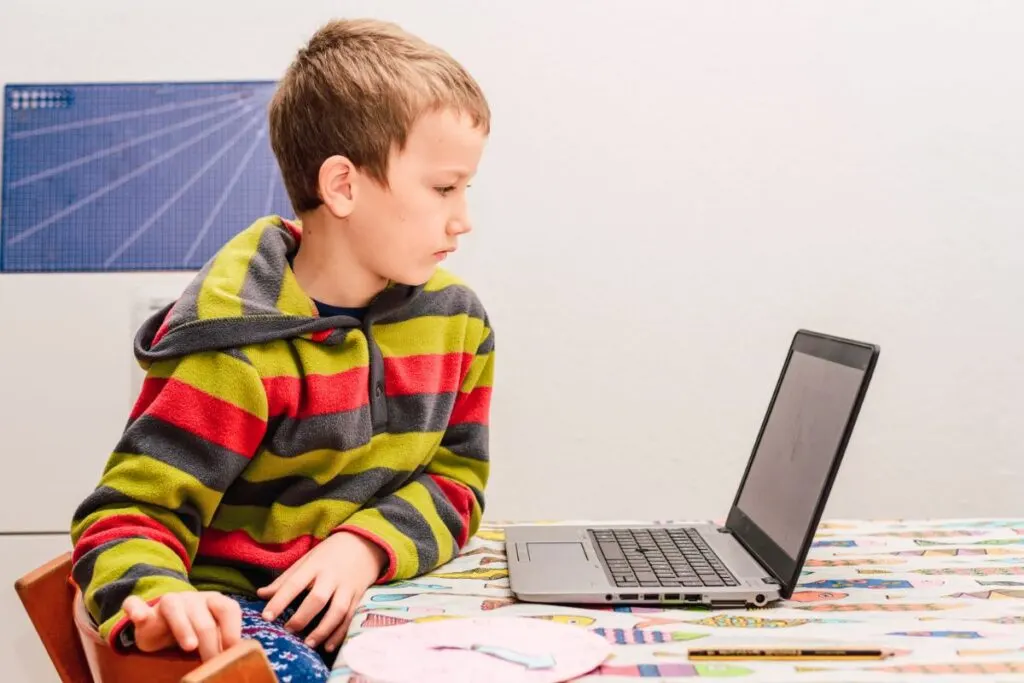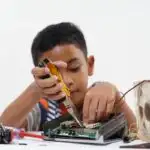Welcome to the exploration of homeschooling’s profound psychological effects. In this insightful journey, we will dive into the intricate interplay of family dynamics, socialization, and academic performance to discover how homeschooling affects these factors.
Uncover the unique facets that shape a child’s self-esteem while also addressing the challenges that may arise for both parents and learners.
We’ll discuss the personalized learning experience and the flexibility homeschooling affords, shedding light on the stress factors and coping mechanisms involved.

So, join us in understanding the nuance of homeschooling.
Socialization
When it comes to homeschooling, socialization takes a unique shape. You might be curious about how this approach influences your child’s social development and interactions with peers.
In a traditional public or private school setting, daily encounters foster social skills, yet homeschoolers craft their social narrative.
We know that homeschooling provides an intimate environment that builds a strong family bond. However, this does mean that your kids are missing out on core opportunities for socialization with other kids their age.
This is why intentional efforts are vital to ensure diverse social experiences.
Whether through community activities, sports, or co-op classes, you must give your child or children opportunities to hang out with other kids their age to not hurt their social development.
Academic Performance
Next up, let’s look at academic performance. If you’re already a homeschooling parent, you’ll know that you can take a very tailored approach that caters to individual learning styles.
You can make sure that you explore subjects that your children are interested in and keep learning interesting and engaging for your child.
However, you may notice challenges when it comes to standardized tests and adapting to more diverse teaching methods if your child ever has to transition back into a traditional school setting.
Although it’s great to tailor your homeschool education to your learner, it can make it more difficult to ensure a balanced, well-rounded education.
That said, it can be argued that, although there may be gaps in your learner’s knowledge, they’re still more likely to have a more solid understanding of the things they have learned because of the individualized learning.
Parent-Child Dynamics
The parent-child relationship takes center stage when it comes to homeschooling. There are few other opportunities to spend as much time with your children during their most formative years as there are with homeschooling.
You will get to take charge of your child’s education, during which you’ll discover a collaborative synergy, fostering open communication and mutual understanding.
The flexibility inherent in homeschooling allows for tailored approaches, ensuring that learning becomes a joint venture full of discoveries and fun.
However, it’s not without its challenges – finding a balance between the roles of parent and teacher demands a delicate dance.
Patience and adaptability are paramount during homeschooling, as going too far in either direction will make playing the other role even more difficult.
We recommend making sure that you give your child plenty of opportunities to spend time away from you and the house so that they don’t feel smothered, particularly as they get older and more inclined to rebel.

Self Esteem
In the realm of homeschooling, the impact on a child’s self-esteem is a crucial facet often overlooked. When learning within the family unit, personalized attention can foster a strong sense of confidence, as achievements are acknowledged promptly.
The absence of peer comparison allows learners to progress at their own pace, promoting a positive self-image.
On the flip side, the limited exposure to diverse perspectives may pose challenges, potentially hindering the development of social confidence. As parents, it’s imperative to strike a balance – celebrating victories, no matter how small, while also creating opportunities for social interaction.
The dynamic interplay between academic accomplishment and social interactions influences a child’s self-worth whilst homeschooling.
By fostering a supportive environment and recognizing achievements as well as the achievements of others, we empower our learners to navigate the complexities of self-esteem with resilience and positivity.
Stress And Burnout
Unfortunately, stress and burnout can weave into the daily fabric of both parents and children. As you engage in this educational path, it’s crucial to recognize potential stressors to effectively address responsibilities, which can lead to overwhelming stress.
The challenge lies in maintaining a balance that nurtures both the child’s learning and the parent’s well-being.
Similarly, children may experience stress when facing demanding academic taste or struggling with the absence of traditional social structures.
Our collective understanding of these stressors allows us to implement strategies that alleviate burnout.
By fostering open communication, setting realistic expectations, and incorporating breaks into the learning routine, we can create a supportive environment that minimizes stress and encourages a positive homeschooling experience for both parents and children.
Challenges Of Isolation
Addressing the challenges of isolation is pivotal. We recognize the significance of social connections in a child’s development. Without the traditional classroom setting, homeschoolers may face limited opportunities for peer interaction.
Yet, we have the power to mitigate these challenges through homeschooling communities, extracurricular activities, and encouraging your child to engage in diverse social settings.
Final Thoughts
As we wrap up our exploration of the psychological effects of homeschooling, we’ve come to understand that there are plenty of benefits and challenges that can come out of teaching your children at home.
Though they can thrive with personalized and one-to-one learning that is tailored to their needs, children also miss out on a lot of vital socialization, and you will have to make intentional steps to ensure that their need to hang out with other kids their age is met.
If you’re willing to put in the work and face the challenges head-on with the intent to overcome them, then you can create a functional and successful homeschool for your kids to grow and flourish.
Further reading: How does homeschooling change a child’s mindset?
- Homeschooling In High School: Pros And Cons - February 24, 2024
- How Do I Withdraw My Child From School To Homeschool? - February 23, 2024
- How To Not Go Crazy Homeschooling Kids: A Guide For Frazzled Parents - February 22, 2024









Leave a comment